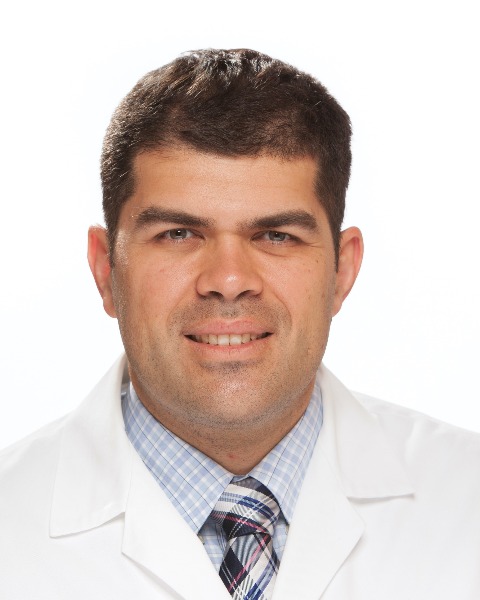Tumor
Short-term Surgical Outcomes of Papillary Craniopharyngiomas: A Multicenter Study from the RAPID Consortium

Michael Karsy, MD, PhD, FAANS
Assistant Clinical Professor
University of Michigan
Lansing, MI, US
Presenting Author(s)
Introduction: Craniopharyngiomas are rare parasellar tumors, and papillary craniopharyngiomas (PCP) represent 8-20% of cases. We assessed surgical outcomes of these very rare tumors among patients treated in the last decade.
Methods: Retrospective data from the Registry of Adenomas of the Pituitary and Related Disorders (RAPID) were used to evaluate patients with PCP treated between 2011 and 2023 at 14 US-based academic skull base centers. Demographic, imaging, surgical, and outcome variables were analyzed.
Results: Ninety-nine patients with PCP were included. Mean age was 51.814.7 and 57.6% were male. Most tumors showed mixed cystic/solid components (67.5%), were trans-infundibular (50.0%), and were treated with an endoscopic endonasal approach (74.5%), with 51.1% demonstrating gross total resection (GTR). Pituitary stalk was preserved in 51.9%. Permanent arginine vasopressin deficiency was seen in 67.1% and was associated with pituitary stalk sacrifice (p=0.003). Cerebrospinal fluid leak was the most common nonendocrine postsurgical, 30-day complication (9.1%), reason for return to the operating room (3.1%), and reason for 90-day readmission (8.1%). Most patients (63.9%) received no adjuvant therapy; GTR was associated with decreased radiotherapy use (p=0.0001). BRAFV600E mutation was detected in 64/69 tumors tested, although only 1 patient was treated with a BRAF inhibitor. A mean follow-up of 12.314.6 months was seen for the group.
Conclusion : To our knowledge, the RAPID consortium enabled the largest real-world clinical information dataset for PCP. GTR decreased the need for further treatment and stalk sacrifice was associated with pituitary dysfunction. Pituitary stalk sacrifice was expectedly associated with neuroendocrine complications in most but not all cases. These data can be used as a benchmark for short-term surgical outcomes. Longer-term follow-up studies are needed to understand how to optimize outcomes from each treatment modality.
Methods: Retrospective data from the Registry of Adenomas of the Pituitary and Related Disorders (RAPID) were used to evaluate patients with PCP treated between 2011 and 2023 at 14 US-based academic skull base centers. Demographic, imaging, surgical, and outcome variables were analyzed.
Results: Ninety-nine patients with PCP were included. Mean age was 51.814.7 and 57.6% were male. Most tumors showed mixed cystic/solid components (67.5%), were trans-infundibular (50.0%), and were treated with an endoscopic endonasal approach (74.5%), with 51.1% demonstrating gross total resection (GTR). Pituitary stalk was preserved in 51.9%. Permanent arginine vasopressin deficiency was seen in 67.1% and was associated with pituitary stalk sacrifice (p=0.003). Cerebrospinal fluid leak was the most common nonendocrine postsurgical, 30-day complication (9.1%), reason for return to the operating room (3.1%), and reason for 90-day readmission (8.1%). Most patients (63.9%) received no adjuvant therapy; GTR was associated with decreased radiotherapy use (p=0.0001). BRAFV600E mutation was detected in 64/69 tumors tested, although only 1 patient was treated with a BRAF inhibitor. A mean follow-up of 12.314.6 months was seen for the group.
Conclusion : To our knowledge, the RAPID consortium enabled the largest real-world clinical information dataset for PCP. GTR decreased the need for further treatment and stalk sacrifice was associated with pituitary dysfunction. Pituitary stalk sacrifice was expectedly associated with neuroendocrine complications in most but not all cases. These data can be used as a benchmark for short-term surgical outcomes. Longer-term follow-up studies are needed to understand how to optimize outcomes from each treatment modality.

.jpg)